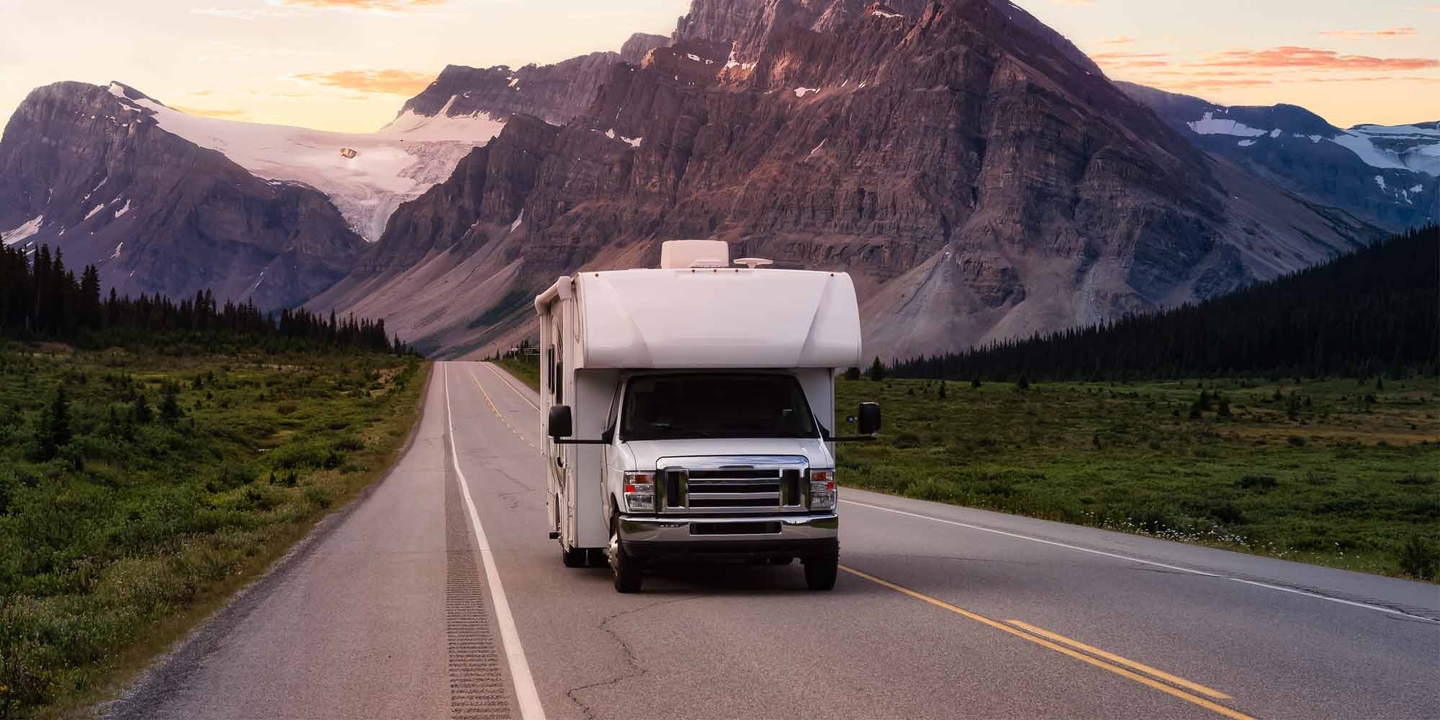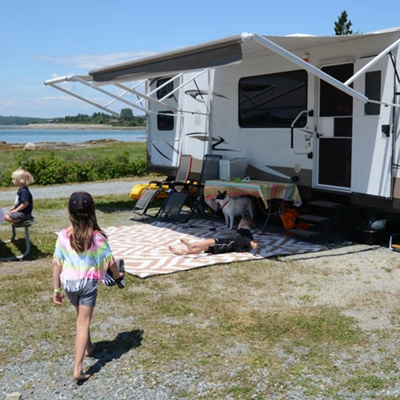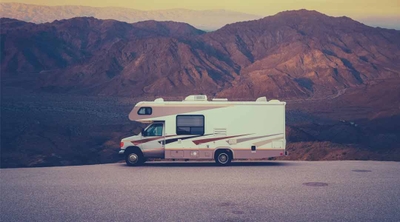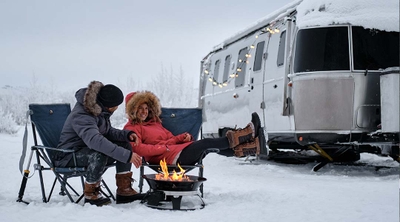Tips for RVing in Canada from the U.S.
2 min read
The week leading up to our trip to Alberta, Canada, we weren’t sure what to expect or what we should or shouldn’t bring in our RV. We began asking friends and fellow travelers who had just returned from Canada about their experiences driving in Canada and tips for a smooth border crossing. Everyone seemed to have different experiences at the Canadian border and wildly different amounts of time in line at the border.
Now that we’ve crossed the border into Canada and then back to the U.S., we formed a short list of “how to have a speedy border crossing” ideas and some dos and don’ts on what to bring with you.
What are the requirements for crossing the border into Canada by RV?
If you plan to go RVing in Canada, you’ll need to prepare certain documents for the border crossing. You’ll want to bring passports for each family member — either a passport book or passport card — and signed, up-to-date veterinary documents for any pets you bring. A REAL ID driver’s license is not a substitute for land travel to Canada.
Things to know before crossing the border into Canada by RV
Planning is essential for an international vacation, even if you stay relatively close to home. Officials may want to know the details of your trip, and if you’re planning an extended stay — or if you’re a full-time RVer with no clear return plans, you may need to complete paperwork to be allowed in.
Have a rough idea of your travel plans including where you’re going, sights you plan on seeing, and provinces you might be visiting. You should also have a rough idea of the length of your trip to Canada (you’ll need a travel visa if your travels exceed 180 days).
What can you bring when driving an RV into Canada?
Border crossings impose strict limits on what you can and can’t legally bring with you. Canada is no exception. The limits are reasonably generous, so unless you’re planning an extended RV trip across Canada, you’ll probably have no problem meeting them. Still, pay close attention to certain controlled substances when you pack your RV. You can bring:
- Any pets that live with you in your RV.
- Five liters or two bottles of wine per person.
- Twenty-four 12-ounce cans/bottles of beer per person.
- Up to 200 packs of cigarettes or 50 cigars.
- You must declare food, and there are limits on what you can bring.
For the current list of how much and what types of food, plants, and animals you can bring with you across the Canadian border, visit the Canadian Food Inspection Agency.
What can’t you bring when driving an RV into Canada?
Other substances are prohibited entirely at the border. For these items, you must either go without for your trip or do some shopping after crossing into Canada with your RV. When you pack, leave the following at home:
- Fresh fruits and vegetables
- Firewood and fireworks
- Guns and ammunition
- Excessive amounts of money ($10,000+)
- Mace and pepper spray
Other considerations for driving an RV into Canada
Being prepared and knowing what you can and cannot bring across the border is key; research before crossing into Canada with your RV or travel trailer. If you’re planning a longer trip, consider how you’ll get your mail while RVing.




